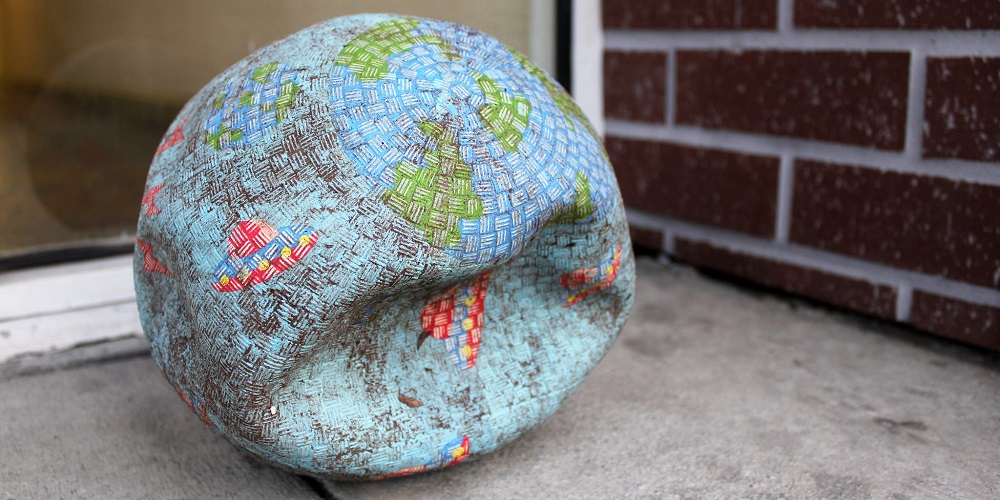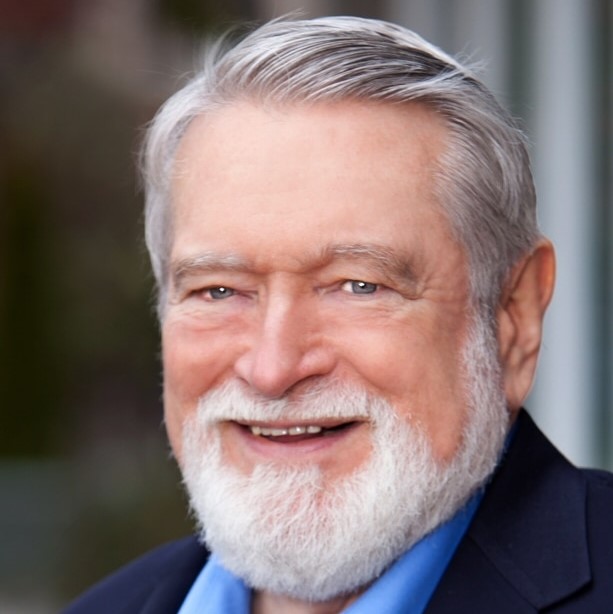
A rearticulation of human development for the 21st century is much needed. I am honoured by the invitation from the International Science Council and United Nations Development Programme to contribute to the discussion. I suggest that a defining focus of the discussion be on a question that the UN has long evaded: is humanity’s defining economic goal to grow Gross Domestic Product (GDP) or to secure the well-being of people and the living Earth?
A global commitment to the economic development of low-income countries began to gain international traction shortly before the end of the Second World War. By the mid-1980s, many of us who had dedicated our lives to that cause concluded that something was badly amiss.
Important progress had been made in extending people’s lives through immunizations and other public health measures. The focus on growing formal sector production and consumption as measured by GDP, however, ignored the essential needs of most people and completely ignored the requirements of Earth’s natural systems. People were being stripped of control of their means of living and Earth was being stripped of its capacity to sustain life. Those alarming outcomes have continued to worsen.
By the estimates of the Global Footprint Network (2018), humans currently consume at a rate 1.7 times what Earth’s regenerative systems can sustain. As a consequence, we are destroying the health of the living systems that provide the food we eat, the water we drink, the air we breathe, and the stability of the climate that shapes the daily life of every living being. As ever more of Earth’s surface becomes uninhabitable, growing millions of displaced people abandon their homes in fear and sadness to seek refuge in Earth’s shrinking liveable places.
In October 2018, the UN Intergovernmental Panel on Climate Change warned that greenhouse gas pollution must be reduced by 45% from 2010 levels by 2030, and 100% by 2050 to prevent irreparable consequences for Earth and humanity. Meanwhile, extreme and growing inequality compels the vast majority of the world’s people to struggle for survival on a daily basis.
Oxfam reports that 26 billionaires now hold personal financial assets greater than those of the poorest half of humanity (Oxfam, 2019). Oxfam further estimates that the poorest 3.9 billion people account for only roughly 10% of total carbon emissions, while the richest 10% account for roughly half (Oxfam, 2015).
In the United States – which boasts of being the world’s richest country – the wealthiest 1% own substantially more wealth than the bottom 90%. Most of the latter face a daily struggle to meet essential needs. Six in ten would have difficulty coming up with $1,000 to cover an emergency expense like a medical bill or car repair.
Some countries are doing a better job than the United States, but the overall picture is a combination of obscene overconsumption by a favoured few and unconscionable desperation for the majority – a situation highlighted and exacerbated by the COVID-19 pandemic. Stated simply, we are destroying Earth’s capacity to support life to grow the fortunes of a few billionaires.
Despite improvement on selected indicators, from a well-being perspective the overall development experience has been a profound failure. We are assured that holding course on the commitment to grow GDP will eventually end poverty and save the environment. Experience suggests the exact opposite. We are long past due in recognizing that the economic theory underlying this assertion is based on false assumptions regarding Earth, ourselves and money.
The deadly COVID-19 pandemic that has shut down the entire global economy now combines with the climate emergency and the threat of future pandemics to bring nature’s primacy to the forefront of human attention. The pandemic also demonstrates our human capacity for rapid, dramatic global-scale change when conditions demand.
The human future depends on deep change guided by a 21st-century economics grounded in three basic truths:
The human future depends on making cultural and institutional choices that align with our needs as living beings – make life, not money, our defining value, and actualize the potential of our human nature and democratic aspirations. These choices frame an emerging vision of a new and truly civilized civilization of peace, justice, material sufficiency, and spiritual and creative abundance for all.
The path to this desirable future requires stepping back to see ourselves anew as a self-aware choice-making species with a profound responsibility to contribute to Earth’s healing from the harms our past carelessness has wrought. Fulfilling that responsibility will require deep restructuring of our human relationships with one another and Earth, grounded in a recognition that our human capacity for choice comes with corresponding responsibilities for the well-being of the whole on which our well-being in turn depends.
In our focus on human rights, we have neglected our corresponding human responsibilities. Recrafting the Universal Declaration of Human Rights as the Universal Declaration of Human Rights and Responsibilities could be a defining mark of our readiness to take the step to a new pro-life civilization that provides adequate, secure and fulfilling work for all through a redirection of Purpose, Power and Procreation.
1. Redirect Purpose from growing GDP to securing the well-being of people and planet. In making GDP growth our defining human purpose, we have made money our defining value and created an economy at odds with our nature as living beings that depend on a living Earth and are possessed of a highly evolved capacity for self-aware choice. We get what we measure. We now have ample evidence that growing GDP is detrimental to the well-being of people and Earth. It is time to focus instead on measures of well-being.
Managing our complex relationships with one another and Earth using GDP as our only performance measure and growth as our only goal is like flying an airplane using only an airspeed indicator, with the goal of maximizing speed. Since the fastest speed can best be achieved by rapid descent, it is a formula for a deadly crash.
Safely flying an airplane requires a dashboard of indicators, including altitude and direction. Managing a modern economy to meet our essential needs in balanced relationship to Earth is even more challenging. Kate Raworth, in her widely acclaimed Doughnut Economics model, calls for two dashboards: one for human well-being and the other for Earth’s well-being. The goal is to move all indicators into a healthy balanced relationship and then hold a steady course.
2. Redirect Power from money-seeking corporations to life-serving communities. The concept of equality enshrined in one-person, one-vote democracy was intended to secure the power of the people. Ultimate power, however, resides in control of access to the means of living.
Democracy, and humanity itself, cannot survive extreme inequality in the distribution of ownership and control of finance and the means of making a living. Limited liability corporations are legal instruments for concentrating virtually unlimited power into the hands of private individuals seeking to maximize personal financial returns freed from public accountability for the consequences of their decisions. As such, they are illegitimate institutions and their transformation must be a key human priority.
Ownership must be equitably distributed, and owners must be held accountable by the community for exercising their ownership rights in ways that align with their ownership responsibilities. Equitable distribution of ownership rights and responsibilities must be enshrined in both law and culture.
3. Redirect Procreation from increasing the human population to launching healthy, meaningful and productive lives.
Finite Earth is the common creation and heritage of all living beings. The products of its regenerative systems must be equitably shared among humans and other species. Among humans, no one holds a right to excess while others are denied their fundamental needs. The more we limit our human numbers, the more of Earth’s products are available for us each to share. If we choose to grow our numbers, we have less to share, and we must each be more frugal.
Every child must be a wanted child. Human conception must be a conscious choice consistent with our distinctive human abilities and responsibilities. And every person must have the means to make conception a conscious and informed choice.
It truly requires a village to raise a human child. Thus, every person must be educated to fulfil their responsibilities for the children they bear and to fulfil their shared responsibility for all of Earth’s children. Similarly, every person, whether or not they choose to conceive a child, is entitled to share in the joy and challenge of securing the well-being of the children of our species and preparing them for the responsibilities of their future adulthood. No one should feel they must have children to share in the joy of raising children, or to assure their own security in their final years. The world has more than enough human children. What we lack is adequate attention to the care and development of all our children to reach their full potential.
The pandemic’s disruption of every aspect of normal daily life presses us to step back and take a deeper look at how we can redefine human development within a well-being framework. It is well past time to free the UN’s work on human development and its sustainable development goals from the misdirection created by inserting perpetual GDP and personal income growth as defining human goals. We are an intelligent self-aware species falling far short of our potential contribution to Earth’s living community. That so many among us now recoil from the thought of a return to business as usual after the pandemic is a source of hope. Perhaps we may yet come together to actualize our possibilities to reconnect to life with a deepened understanding of ourselves and our relationship to and responsibility for Earth, one another and Earth’s community of life.

Photo: David Korten
David C. Korten is a former member of faculty of the Harvard Graduate School of Business and the Harvard Graduate School of Public Health. He lived and worked for 21 years as an economic development professional in Ethiopia, Central America, Philippines and Indonesia and is founder and president of the Living Economics Forum. His books include When Corporations Rule the World and The Great Turning: From Empire to Earth Community.
Cover image: by Quinn Dombrowski on Flickr.